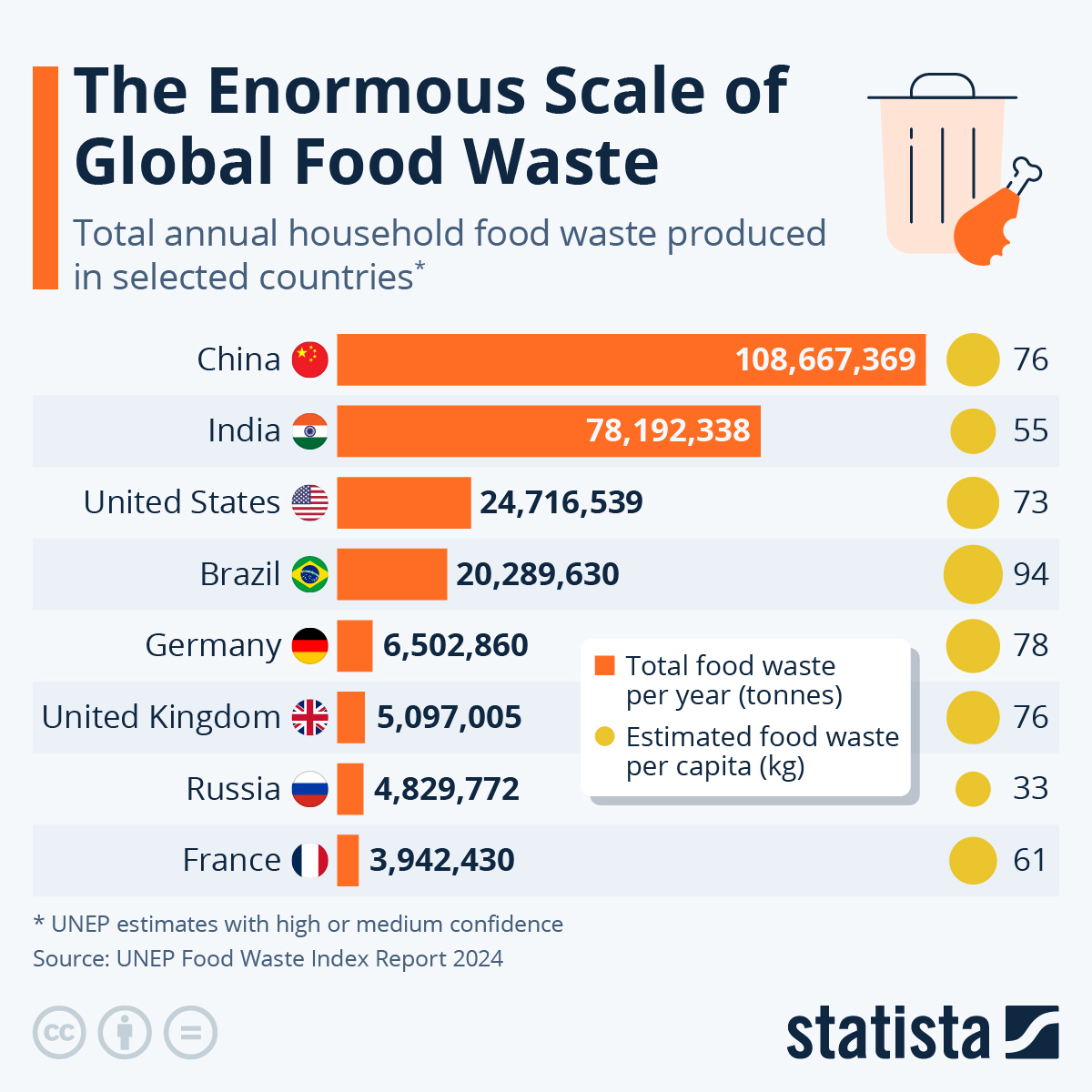this post was submitted on 24 Sep 2024
45 points (95.9% liked)
zerowaste
1292 readers
3 users here now
Discussing ways to reduce waste and build community!
Celebrate thrift as a virtue, talk about creative ways to make do, or show off how you reused something!
founded 2 years ago
MODERATORS
you are viewing a single comment's thread
view the rest of the comments
view the rest of the comments

Fascinating to note, despite all the inefficiencies in capitalist food distribution and how horrifying entire dumpsters full of stale bread or "spoiled" vegetables are, roughly 60% of all food waste occurs at the household level, that is, because of the decisions of individual consumers on how they handle their own food at home.
The next time someone tries to argue "individual consumption doesn't matter" I'll have to cite this chart.
"individual consumption doesn't matter" is green "your vote doesn't matter"
I'd argue individual consumption is often more impactful than your vote. You can't gerrymander a dollar.
When it comes to votes, details aside, your vote is weighed equally to everyone else. When it comes to most matters of consumption, especially relating to greenhouse gasses and other environmental issues, individual "votes" pale in comparison to industry. It becomes more like owning a share in a company, yeah your shareholder vote "matters" but the bank/investment firm that owns 500,000 shares certainly has more sway.
Not that I am disagreeing individual waste is a big part of it, I am not convinced this chart adequately demonstrates that. Is the per capita from the chart after they remove non-individual waste from the total? If not then the per capita includes things like commercial or industrial waste and it’s not really reflecting an individual waste perspective.
The chart measures household food waste. So yes. That is explicitly what it did.
Do you know where the chart came from (presumably the statista article author)? I didn’t see it in the report, and I didn’t match the numbers so wasn’t really sure.